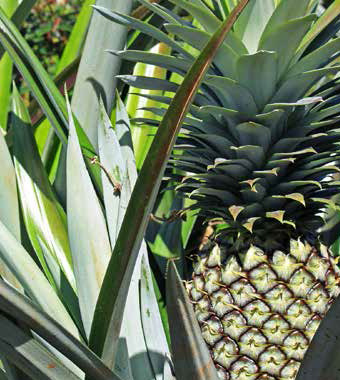 Farmer-to-farmer learning exchanges are not a new concept and many of them have been run over the five years of the MTCP2 programme. Running a large number of these exchanges, across seven countries and a variety of crops has allowed refinement of the farmer-to-farmer exchange model so that they now work better for farmers and farmer organisations in the Pacific.
Farmer-to-farmer learning exchanges are not a new concept and many of them have been run over the five years of the MTCP2 programme. Running a large number of these exchanges, across seven countries and a variety of crops has allowed refinement of the farmer-to-farmer exchange model so that they now work better for farmers and farmer organisations in the Pacific.
In Samoa there have been a variety of farmer-to-farmer technical exchanges during the programme. These have included off-season pineapple production (see previous story), papaya production, soil management, floriculture, dragon fruit and agro-processing. The Samoa Farmers Association has therefore had plenty of opportunities to make their own refinements to the model.
One of their key findings is the importance of careful selection of participants in initial farmer-to-farmer exchanges. The aim at first should not be to train a large number of farmers, but rather should be to establish a small number of local champion farmers, who can implement what they learn on their own farms, apply the technology and build their own expertise. Follow up exchanges are important for reinforcement of the initial training and to provide additional knowledge and skills.
Once the local champion farmer is successfully producing their own crops, they can start to train other local farmers. Using the skills they have learnt, plus their own local farming experience, makes the knowledge transfer to other farmers easier. Their farm provides a visible, working example to other famers, while the champion farmer is on hand to mentor them as they make the changes to new crops, or to new production methods.
